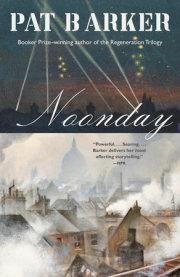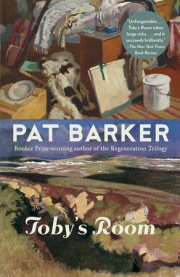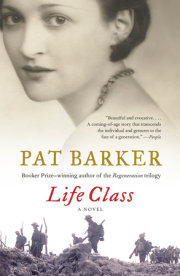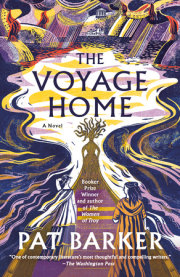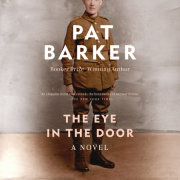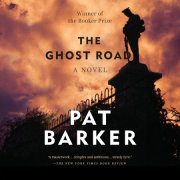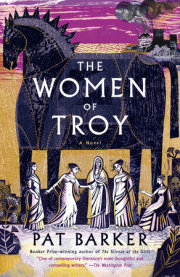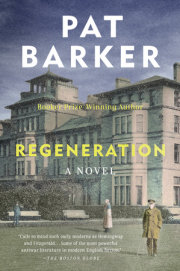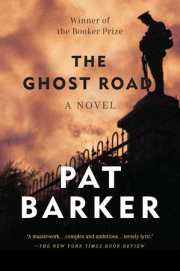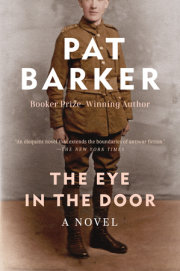CHAPTER ONE:
Elinor was halfway up the drive when she sensed she was being watched. She stopped and scanned the upstairs windows—wide open in the heat as if the house were gasping for breath—but there was nobody looking down. Then, from the sycamore tree at the end of the gar- den, came a rustling of leaves. Oh, of course:
Kenny. She was tempted to ignore him, but that seemed unkind, so she went across the lawn and peered up into the branches.
“Kenny?”
No reply. There was often no reply.
Kenny had arrived almost a year ago now, among the first batch of evacuees, and, although this area had since been reclassified—“neutral” rather than “safe”—here he remained. She felt his gaze heavy on the top of her head, like a hand, as she stood squinting up into the late-afternoon sunlight.
Kenny spent hours up there, not reading his comics, not building a tree house, not dropping conkers on people’s heads—no, just watching. He had a red notebook in which he wrote down car numbers, the time people arrived, the time they left . . . Of course, you forgot what it was like to be his age: probably every visitor was a German spy. Oh, and he ate himself, that was the other thing. He was forever nibbling his fingernails, tearing at his cuticles, picking scabs off his knees and licking up the blood. Even pulling hair out of his head and sucking it. And, despite being a year at the village school, he hadn’t made friends. But then, he was the sort of child who attracts bullying, she thought, guiltily conscious of her own failure to like him.
“Kenny? Isn’t it time for tea?”
Then, with a great crash of leaves and branches, he dropped at her feet and stood looking up at her, scowling, for all the world like a small, sour, angry crab apple.
“Where’s Paul?”
“I’m afraid he couldn’t come, he’s busy.”
“He’s always busy.”
“Well, yes, he’s got a lot to do. Are you coming in now?” Evidently that didn’t deserve a reply.
He turned his back on her and ran off through the arch into the kitchen garden.
Copyright © 2016 by Pat Barker. All rights reserved. No part of this excerpt may be reproduced or reprinted without permission in writing from the publisher.


